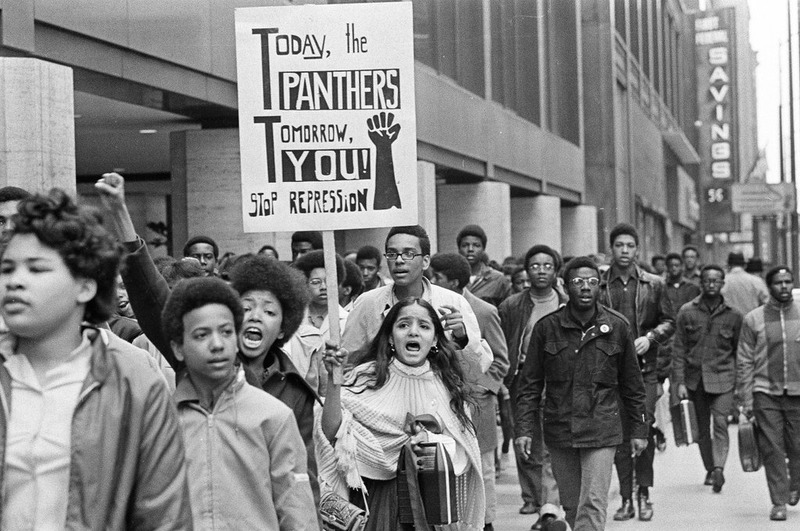
The Rainbow Coalition and Urban Renewal
How Black and Brown Power Activists Fought Urban Renewal and Gentrification in Chicago
By: October Grace Kamara
My favorite reading from this semester was the chapter “Myth #10: Public Housing Tenants are Powerless” from the book Public Housing Myths: Perceptions, Reality, and Social Policy. In this chapter, author Rhonda Williams bust the myth that tenants of public housing were powerless by describing how low income Black women fought for tenants rights in Boston and Philadelphia. They were able to fight to change the management system in the buildings and establish a city wide tenants board. [1] As a historian that studies Black Power, I found Williams’ argument about the influence of Black power and nationalism to be the most compelling part of her piece. Williams’ argues that Black women were radicalized by their work in public housing to fight for economic equality and rights in other areas such as police brutality, unemployment, anti-Vietnam War movements, etc. They worked with Black freedom activists in their city, and in turn their activism inspired Black power thinkers. [2] However, racial solidarity was not always a positive thing. For example, the Soul School, a Black militant group in Baltimore, fought for the first Black manager of Murphy Homes in 1970. They were successful in getting a Black manager after encouraging Black residents of Murphy Homes to sign a petition, but the new manager was widely disliked and didn’t lead to an improvement in residents’ way of living or position to advocate for tenants rights. [3] This chapter encouraged me to see the position on urban renewal and public housing that was taken by Black and Brown Power movements here in Chicago and if their influence was a negative or positive thing on the fight against urban renewal in the city (or both in the case of Williams’ chapter). This research rabbit hole led me to the Illinois Chapter of the Black Panther Party (ILBPP) and the Young Lords.
The ILBPP was founded by Fred Hampton and Bobby Rush in 1968.[4] Although they were a chapter of the Black Panther Party, which can sometimes be quite separatist, Hampton recognized the need for a racial coalition to oppose the political corruption of Mayor Richard J. Daley’s Democratic machine. So the ILBPP became a founding member of the Rainbow Coalition, bringing together the Illinois Panthers, a white radical group called Rising Up Angry (RUA), a group of radical white southerners called the Young Patriots (YPO), and a group of militant Puerto Rican Americans called the Young Lords.[5]
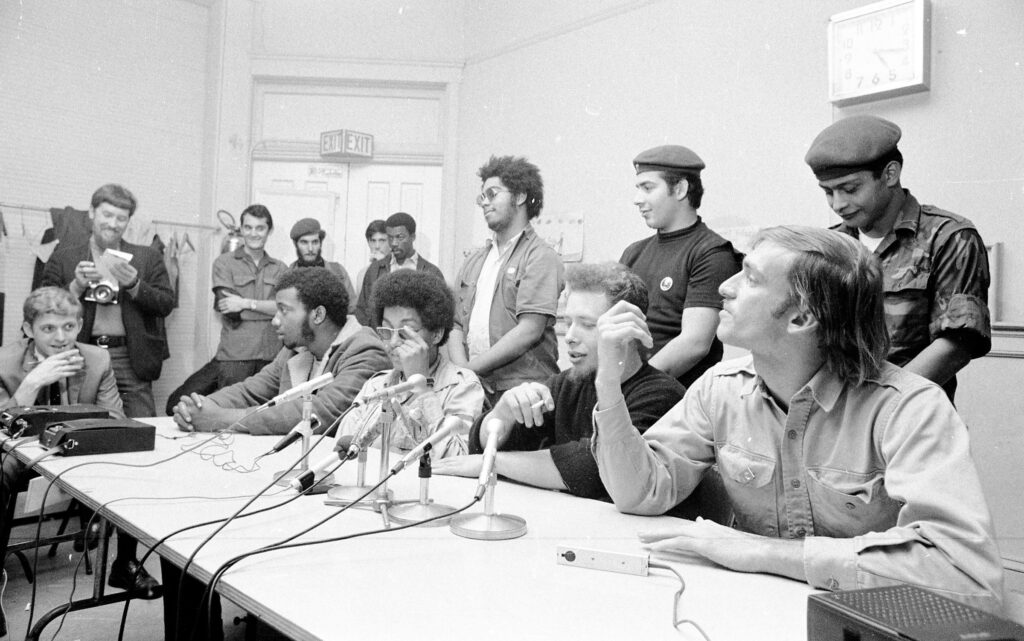
The Rainbow Coalition was particularly interested in fighting back against Mayor Daley’s urban renewal and gentrification policies by “eradicat[ing] political divisiveness centered in racism, teaching[ing] communities how to empower themselves via grassroots organizing, and. . . develop[ing] a classless society. [6] This grassroots organizing can be seen with RUA, the YPO, and the Young Lords adopting the community survival programs that the Black Panthers are famously known for such as the free breakfast program, establishing a free health care clinic, creating free community centers, free legal services, etc.
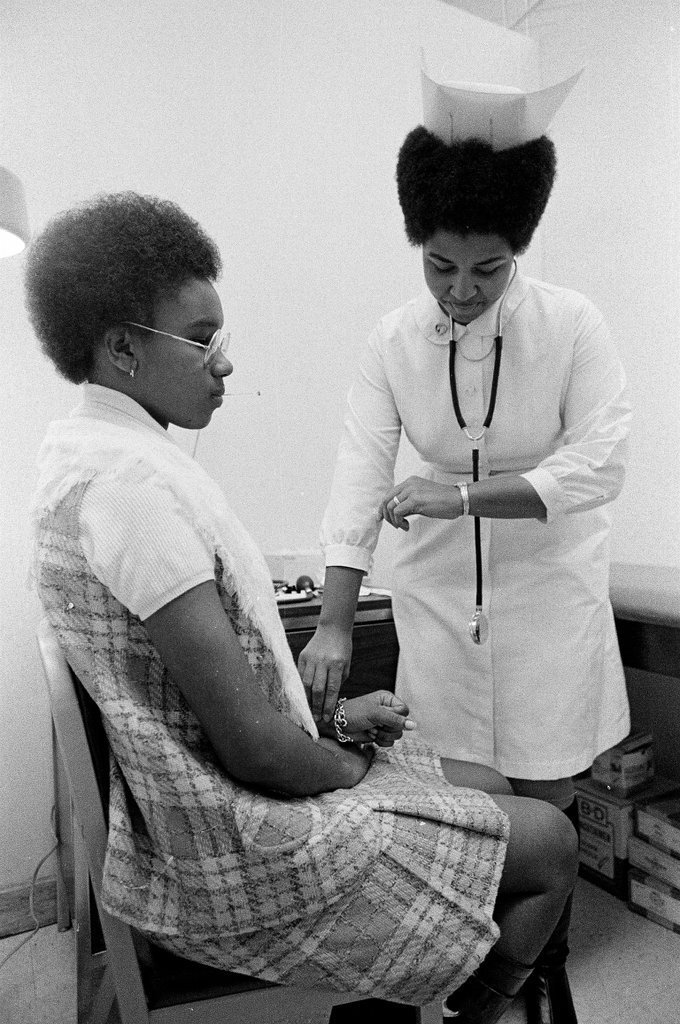
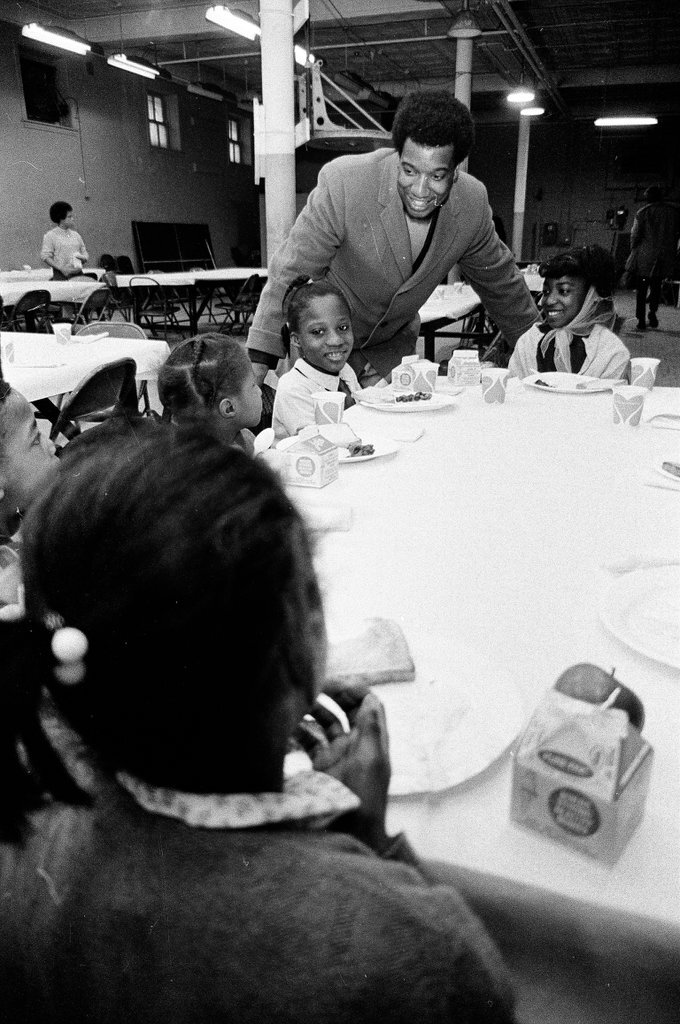
However, certain members of the Rainbow Coalition went a step beyond and actively protested gentrification in their neighborhoods– this is true particularly of the Young Lords in the Lincoln Park neighborhood. On May 15, 1969, the Young Lords started a five day takeover of the Presbyterian McCormick Theological Seminary (now a part of DePaul University), demanding that the $601,000 the seminary had allotted for the community be used to develop affordable housing. They were successful in securing the money and it was used for housing, health care, and to create a legal aid office. [7] They staged another takeover at the Armitage Avenue Methodist Church, also in Lincoln Park. With the aid of the pastor, Bruce Johnson, they were allowed to establish a day care center and a free breakfast program in the basement of the church that they called the La Iglesia de la Gente (or the church of the people). [8]
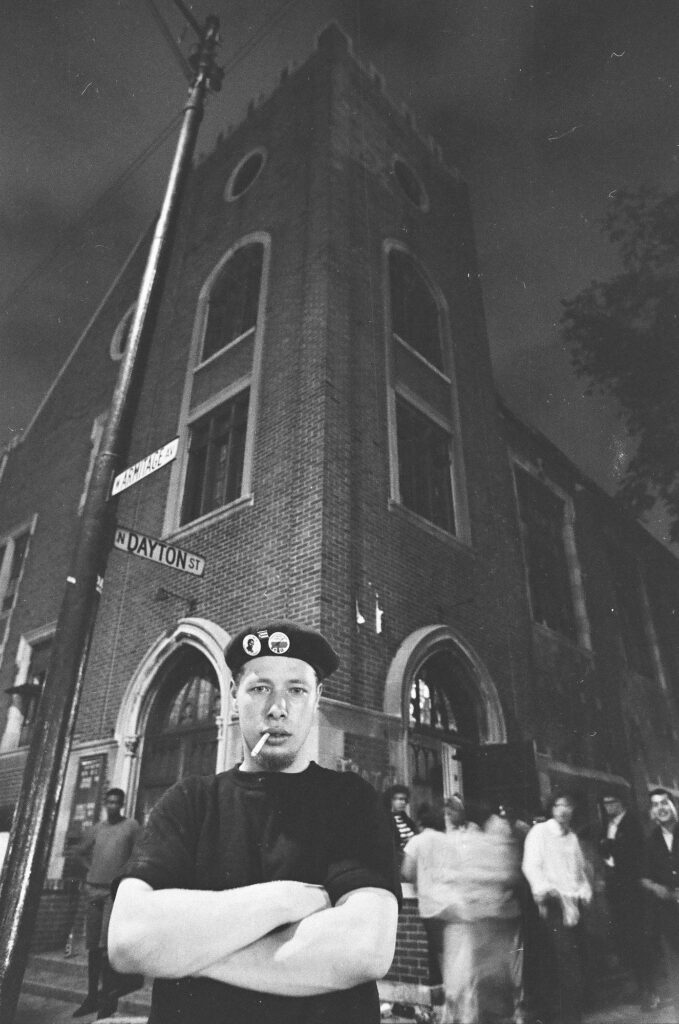
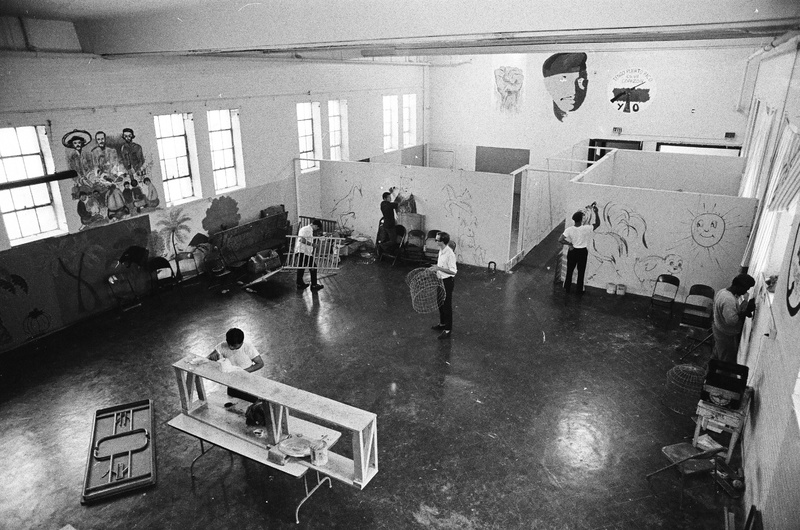
These images show us how Black, Brown, and white people came together to fight back not just against urban renewal, but structural racism and poverty as a whole. They understood that racial division only aided the government’s agenda to displace minority communities and worked together to establish survival programs that helped provide housing, food, child care, health care, etc. to their communities. This story shows the interconnectedness of housing activism to racial and economic freedom ideology.
Footnotes
[1] Rhonda Y. Williams, “Public Housing Tenants Are Powerless,” in Public Housing Myths: Perception, Reality, and Social Policy, ed. Nicholas Dagen Bloom, Fritz Umbach, and Lawrence J. Vale (Cornell University Press, 2015), 213-215.
[2] Ibid., 208-210.
[3] Ibid., 219-220.
[4] Nicole Ramirez, “The Assassination of Fred Hampton: The Illinois Chapter of the Black Panther Party”, Digital Chicago, accessed December 10, 2024, https://digitalchicagohistory.org/exhibits/show/fred-hampton-50th/the-illinois-black-panther-par
[5] Jakobi Williams, From the Bullet to the Ballot: The Illinois Chapter of the Black Panther Party and Racial Coalition Politics in Chicago (University of North Carolina Press, 2013), 128.
[6] Ibid., 126.
[7] “The Young Lords Battle Against Displacement in Lincoln Park”, The Young Lords of Lincoln Park, WTTW Chicago Stories, accessed December 10, 2024, https://interactive.wttw.com/chicago-stories/young-lords-of-lincoln-park/the-young-lords-battle-against-displacement-in-lincoln-park
[8] Ibid.